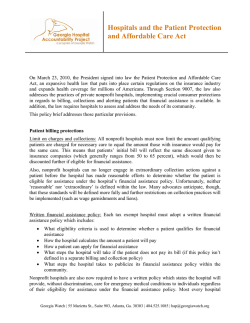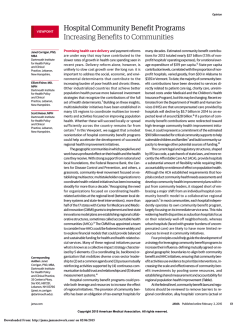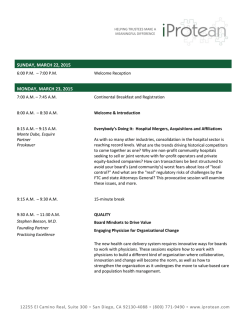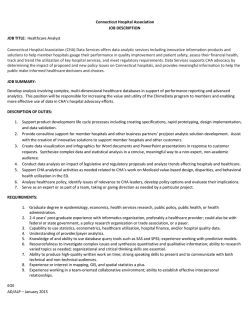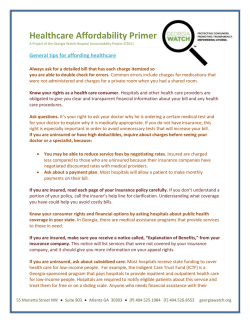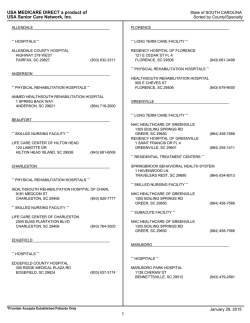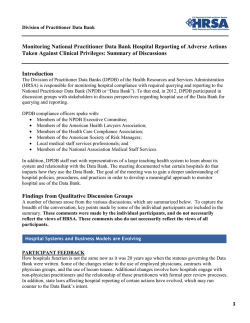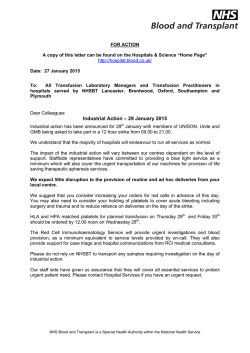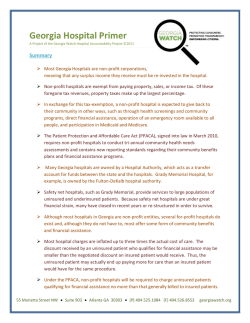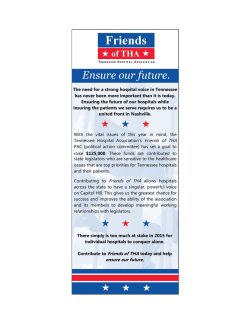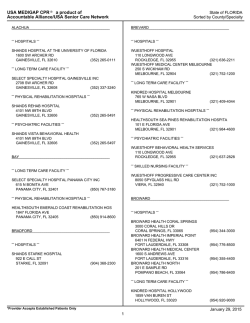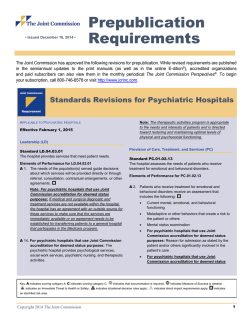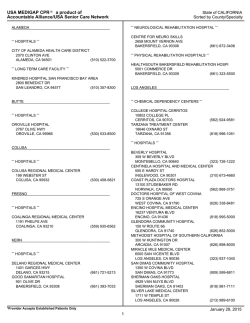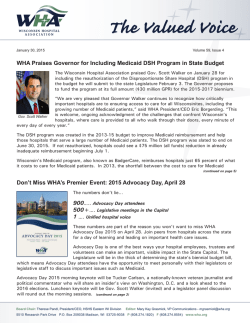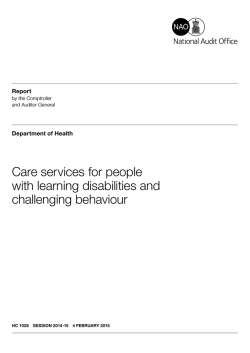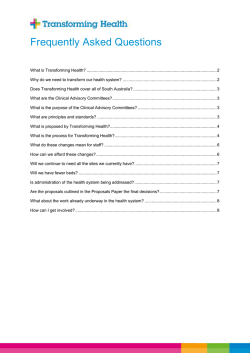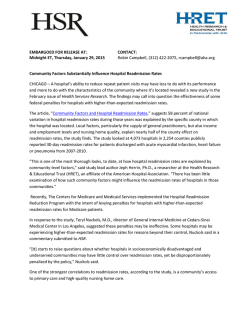
"Your View" Opinion re - Illinois Hospital Association
Crain's Chicago Business
Letter to the Editor
February 2, 2015
Hospital capacity not just a matter of counting beds
I want to emphasize the critical role of the Illinois Hospital Association's more than 200
hospital and nearly 50 health system members in transforming the state's health care
delivery system ("Special report: Running on empty," Jan. 26).
The key question is not whether hospital bed occupancy rates are too high or too low, but
whether we have the best array of health care services, including inpatient acute care, for
patients in our communities. We must provide the right care, at the right time, in the right
place.
Reduction of unnecessary hospitalizations is a strong indicator of hospitals' efforts to better
manage care to improve outcomes and lower costs. Hospitals are improving quality of
care, including substantially reducing readmissions and health care-acquired conditions,
which also have an impact on utilization.
Hospitals across the state are transforming to meet community needs—moving to
outpatient services, care coordination, post-acute, home health, palliative care, community
partnerships and community-based clinics. Rural hospitals also are transforming,
establishing clinics to provide greater access to primary care and outpatient services. The
hospital's reach and vision spread far beyond its traditional acute-care role and mission.
But there always will be a critical need for inpatient care and services, including for
unexpected emergencies such as disasters. When you truly need to be hospitalized in full
cardiac arrest, in the first stages of a stroke or for major surgery or traumatic injuries from
an accident, there is no substitute for getting to a hospital.
"Raw" hospital bed occupancy rates don't tell the whole story:
• 280,000-plus Illinoisans now have coverage through the Affordable Care Act;
405,000-plus Illinoisans have coverage through the Medicaid expansion. The
numbers are growing, with an increased demand for access to hospital services.
• 76 million U.S. baby boomers are aging, with health care needs increasing.
• Hospitals need flexibility to ramp up their surge capacity beyond day-to-day
needs. Such capacity was critical in saving lives in the Boston Marathon bombing.
Consider flu, Ebola, tornadoes, mass shootings, car accidents, terrorist attacks. We
need our hospitals to be available and ready.
• Hospitals are major job creators, vital to their communities' economic health,
among the top three employers in nearly half of Illinois' counties.
Finally, hospitals often don't use their maximum capacity in order to be flexible and
address rapid changes as the transformation of health care continues.
It's not just about the numbers; it's about having a health care system that ensures the
health of our communities.
MARYJANE A. WURTH
President and CEO
Illinois Hospital Association
Naperville
© Copyright 2026
